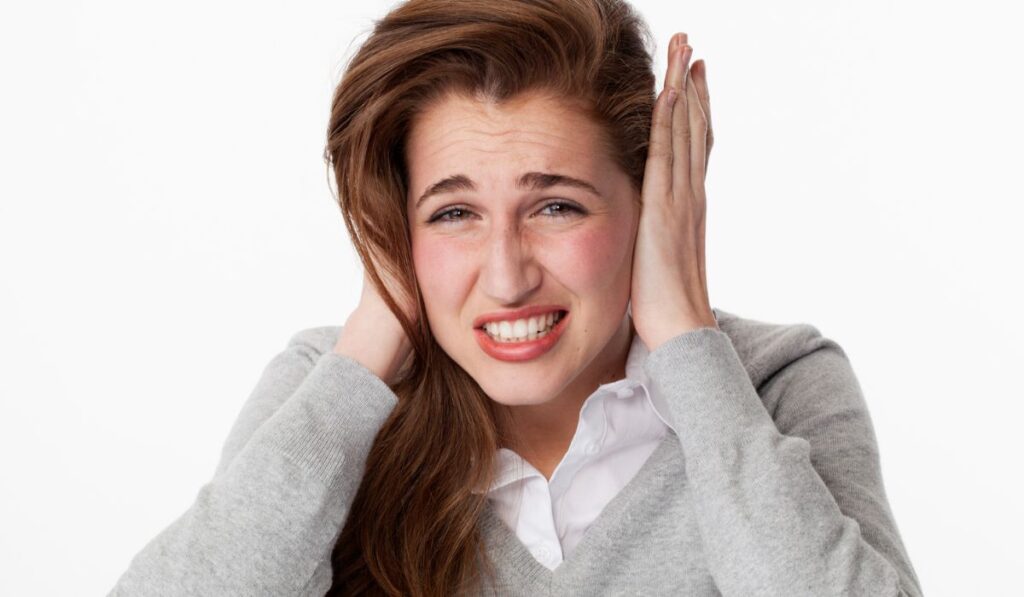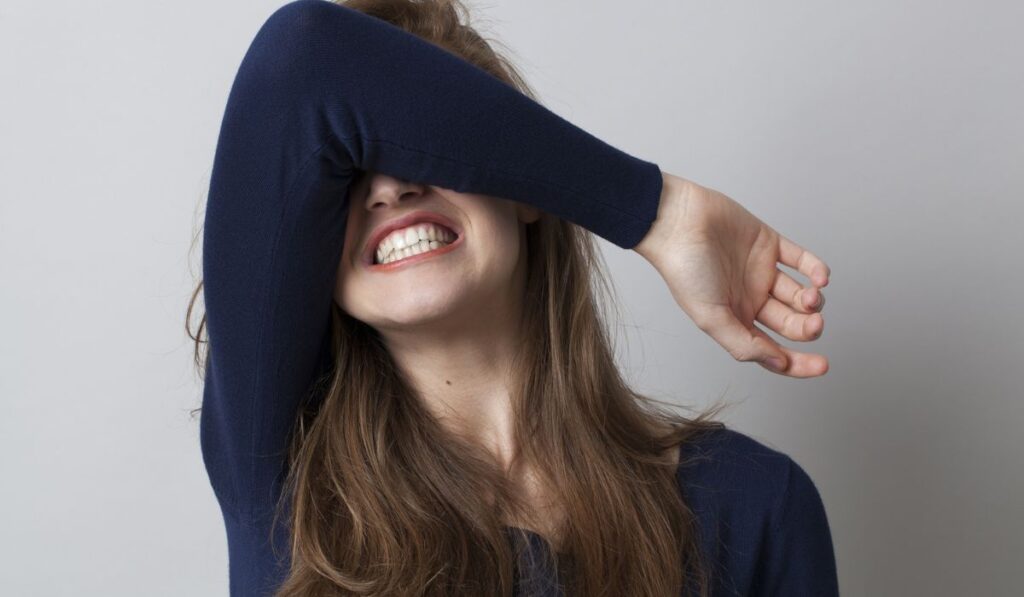If you’ve ever caught yourself grinding your teeth for no apparent reason during the day, you might be wondering what the actual cause was and whether it’s something to be concerned about. Involuntary teeth grinding is quite common, but why does it occur? And is it dangerous?
Most people develop a habit of teeth grinding, or bruxism, due to stress or anxiety. However, teeth misalignment, certain foods, and some medications can also cause you to grind your teeth. Chronic teeth grinding can be harmful, and you should visit a dentist if you experience it.
Let’s take a closer look at the main causes of teeth grinding, the risks it poses, and what you should do if you’ve been grinding your teeth.
What Causes Daytime Teeth Grinding?

Daytime teeth grinding is often caused by stress or anxiety, although misaligned teeth and certain foods or medications could also be behind your teeth grinding habit. As is the case with grinding your teeth at night, daytime teeth grinding is involuntary.
The main causes of daytime teeth grinding include:
Stress or Anxiety
In most cases, daytime teeth grinding happens when you’re in a difficult, stressful, or uncomfortable situation.
Often, your mind will be too occupied or stressed out that you won’t even notice that you’re grinding your teeth. Daytime teeth grinding may be part of your brain’s way of dealing with a stressful situation.
Certain Foods and Medication
If you have a habit of grinding your teeth, certain foods may make it worse. For example, coffee and sugary foods can cause you to become hyperactive, increasing the intensity of your daytime teeth grinding.
Daytime teeth grinding may also be caused by antidepressants and other medications. These medications may interfere with the balance of neurotransmitters in your body, causing you to fall into a habit of teeth grinding.
These foods and medication won’t really cause you to start grinding your teeth unless you already have a habit of doing so. However, they can certainly make the habit worse.
Misaligned Teeth
If you have misaligned teeth, you may involuntarily grind them during the daytime. The same is true if you’ve damaged your teeth or lost a tooth and your teeth don’t set in properly. In such cases, you’ll have to visit a dentist to correct the issue.
What Is Bruxism?
Bruxism is a medical term for involuntary teeth grinding. Bruxism is common in both children and adults, and it can range from a light clenching of the teeth to heavily grinding them. Bruxism is more common at night, when many people may grind their teeth involuntarily without being aware of it.
Bruxism is often hard to recognize since it’s an involuntary action. Most people only find out that they’re grinding their teeth when others point it out to them. However, other signs that you may suffer from bruxism include:
- Pain in your jaw after waking up from sleep
- Tooth sensitivity that’s caused by worn-out tooth enamel
- Cracked, chipped, or worn down teeth
- Tongue or cheek indentations
- Occasional toothaches
- Headaches
While these symptoms may also be signs of poor oral hygiene and other dental problems, you should visit a dentist if you suspect that they may be caused by teeth grinding. Your dentist will diagnose the cause of these symptoms and give you a treatment plan to help you overcome bruxism.
Can Bruxism Go Away on Its Own?
Bruxism doesn’t go away entirely on its own in many cases, but it may come and go depending on certain stressors or lifestyle choices.
That said, children who develop the habit during teething or when their permanent teeth come out will usually leave the habit once they get used to their new teeth.
Since bruxism is often your body’s reaction to stress, calming yourself down and getting to the root cause of the problem is the best treatment. Once bruxism becomes a habit, it’s difficult to stop since you’ll grind your teeth involuntarily.
However, once you become aware of your condition, you’ll be able to take steps to get rid of the habit. Some cases of bruxism require professional behavioral treatment.
What Are the Dangers of Teeth Grinding?
While clamping your teeth every now and then won’t cause major problems, constantly grinding your teeth can cause the enamel to wear away. In cases of chronic teeth grinding, you may even break your teeth.
If you grind your teeth in the daytime, it could also be a sign that you suffer from night bruxism.
Some of the dangers of teeth grinding include:
Damage to the Tooth Enamel
Even mild cases of teeth grinding can cause damage to your tooth enamel, as will brushing vigorously, using abrasive whitening products, and eating acidic or sugary foods. However, when you grind your teeth, the outer enamel layer gets damaged much faster, exposing your teeth roots.
This may cause your teeth to become sensitive to hot and cold foods, and you’ll have a higher risk of getting cavities.
Broken Teeth
If you grind your teeth too hard, it may cause parts of your teeth to break off. Apart from being painful, this is a dental emergency, and you’ll likely need a filling, crown, or root canal to restore your broken tooth.
Headaches and Sore Jaws

Grinding your teeth at night can disrupt your sleep and give you a sore jaw or headache when you wake up. Since it’s an involuntary action, you may not realize that your headaches are actually caused by grinding your teeth.
Teeth Grinding Can Cause Permanent Facial Damage
If you suffer from chronic teeth grinding, it may seriously misalign your teeth, resulting in permanent damage to your jaw and facial structure. Because this happens gradually, many people don’t realize the extent of the damage until it becomes permanent.
How Do You Stop Teeth Grinding?
Just like any other habit, teeth grinding can be stopped, although it’s slightly more difficult since it’s an involuntary action. The best way to resolve your teeth grinding problem is to visit a dentist. They will assess the extent of the damage and recommend solutions for getting rid of the habit.
Often, the solution to teeth grinding problems is to get to the root cause of the problem. If you suffer from stress or anxiety, try meditation, yoga, and exercise to clear your mind. You can also drink a cup of green tea before sleeping to reduce night bruxism.
Your dentist may also recommend using a mouthguard to protect your teeth at night, or they might suggest a botox treatment, which has been found to be helpful in certain cases.


